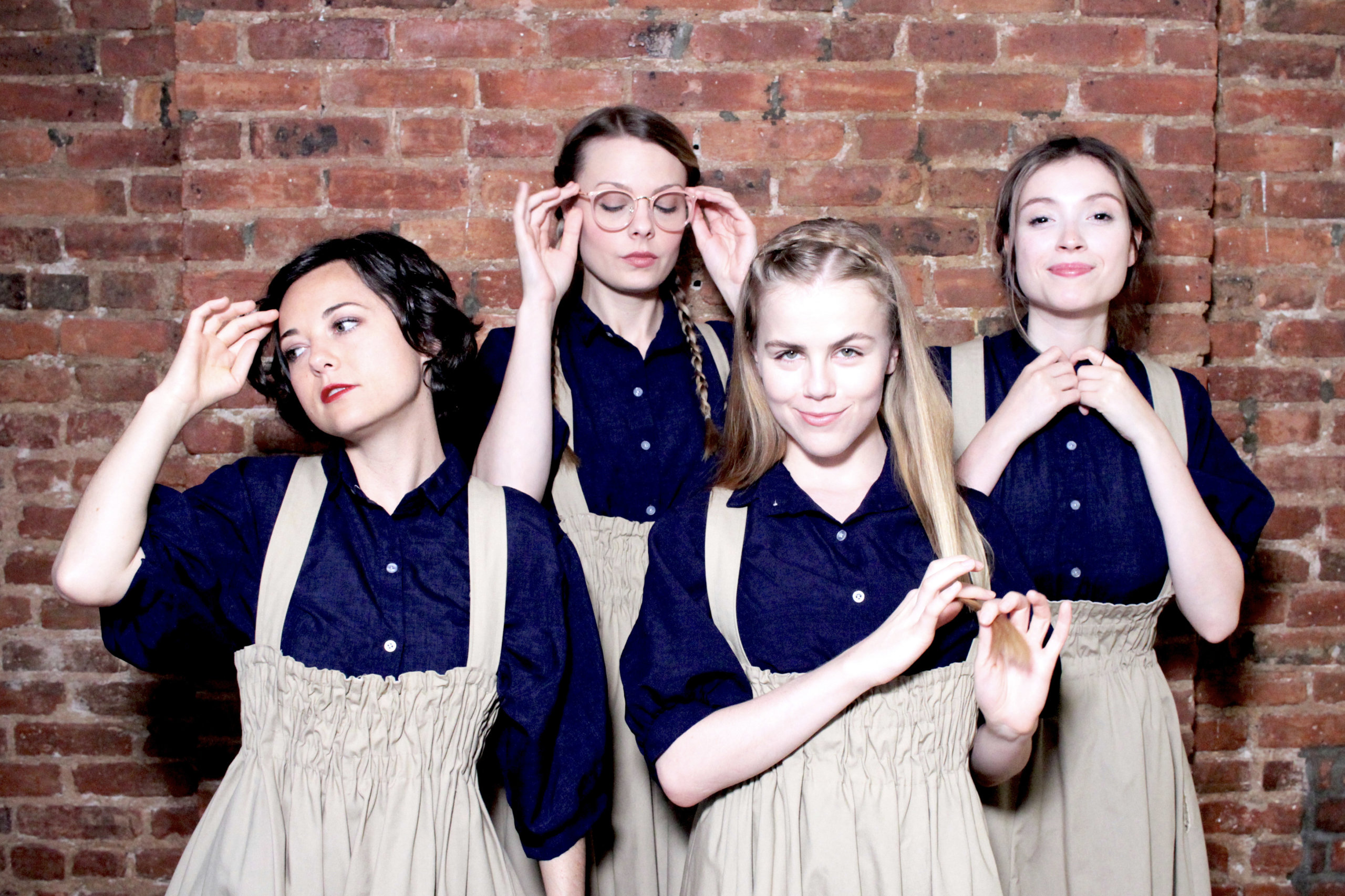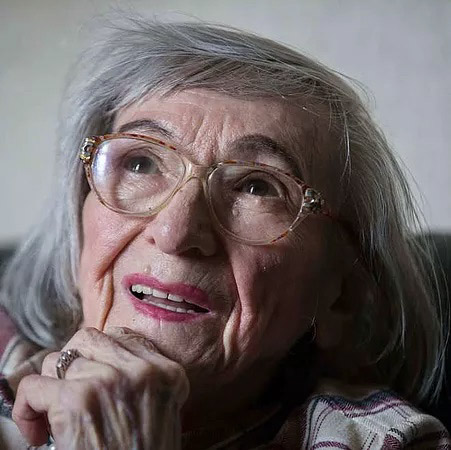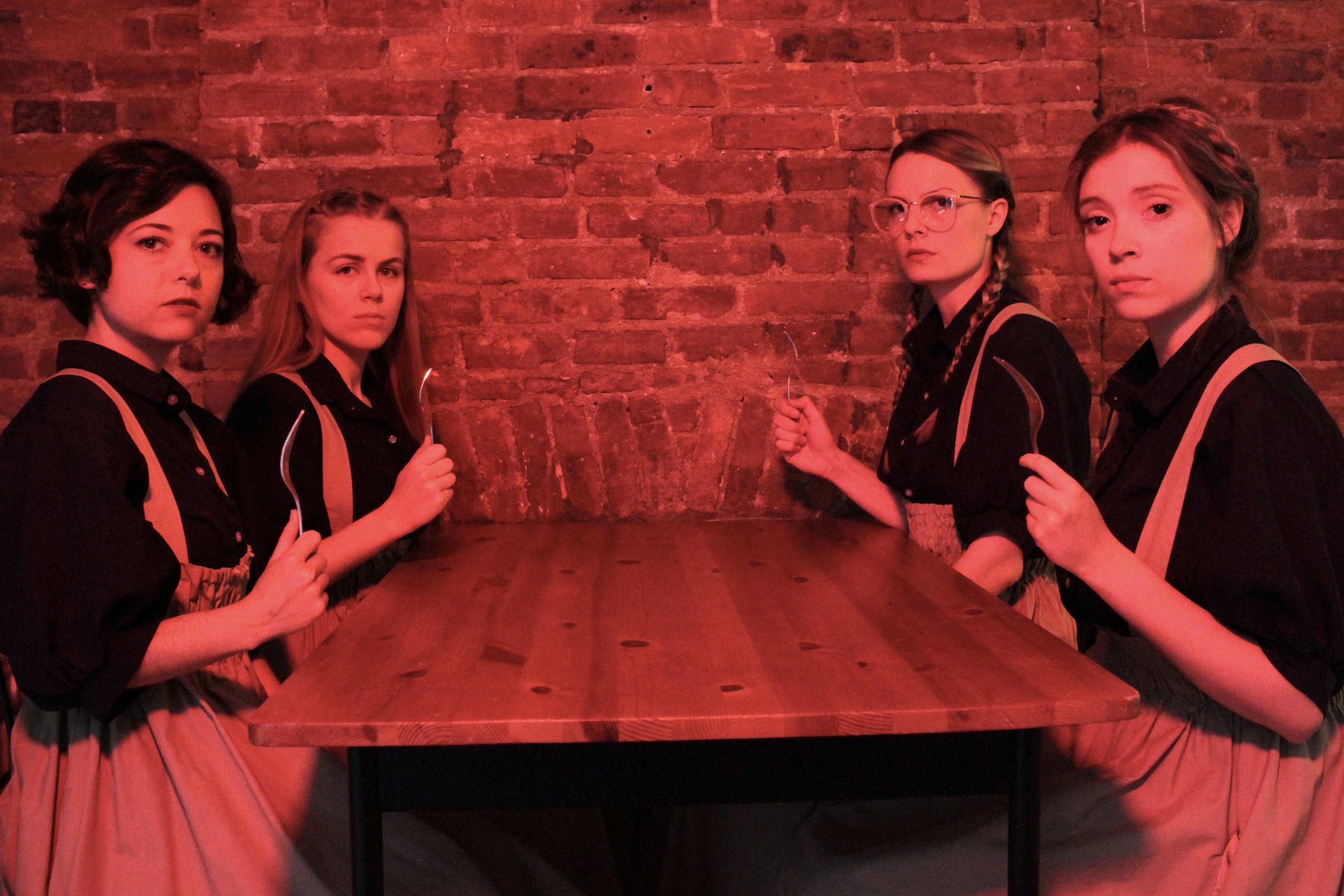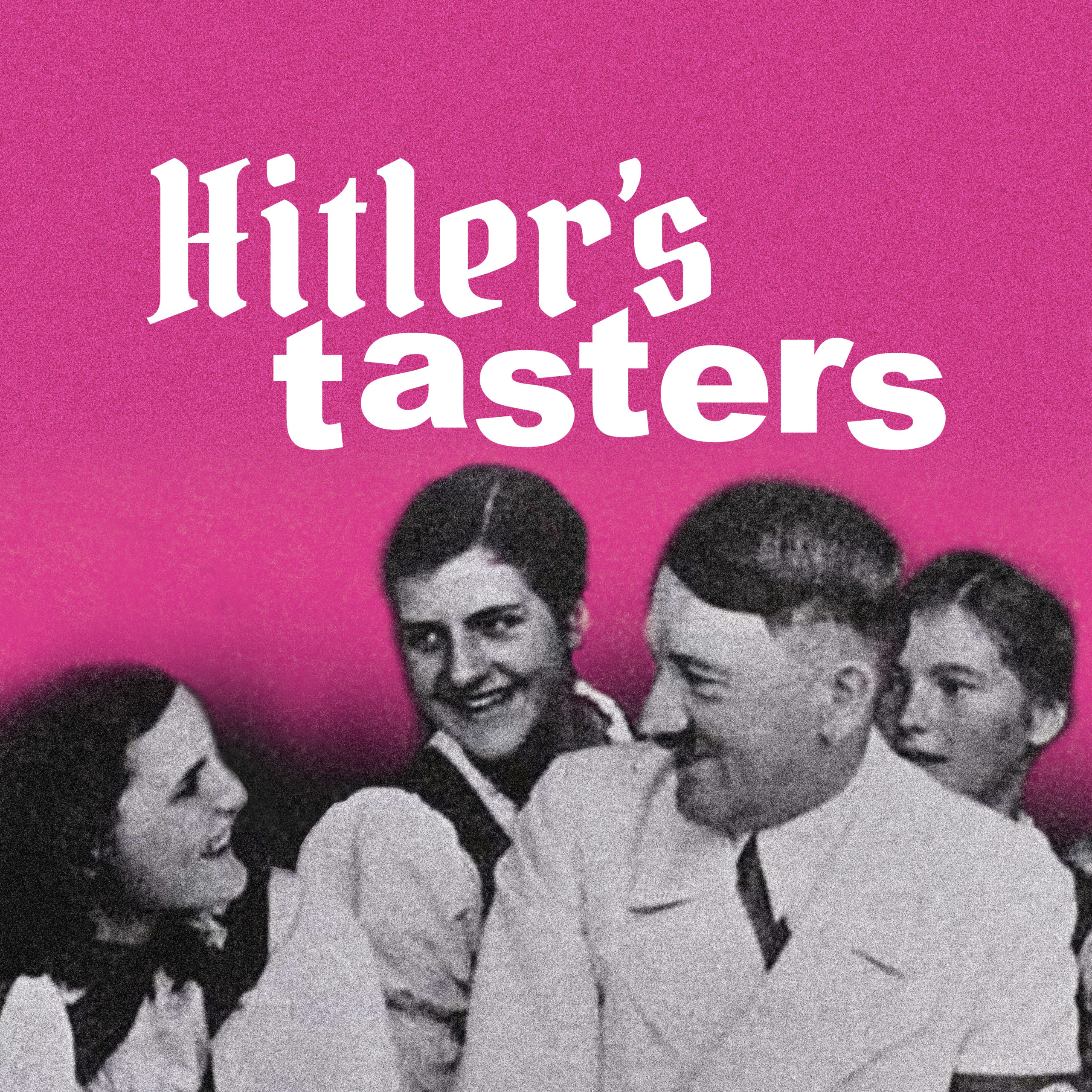Savor Hitler’s Tasters at Guild Hall

For three days, Thursday–Saturday, September 9–11, Guild Hall in East Hampton is inviting local audiences into the world of Hitler’s Tasters. Michelle Kholos Brooks’ award-winning, darkly comic and wildly anachronistic play puts viewers at the table with a group of teenage girls who risk their lives for three meals each day to ensure their Fuhrer’s food isn’t poisoned.
While it prominently features contemporary music, cellphones and selfies, the heart of the story is inspired by the true-life experiences of Margot Woelk, a German secretary who was one of 15 young women chosen in 1942 to partake in the grim yet decadent repasts, eventually also served to Adolf Hitler, at the dictator’s secret Wolfsschanze (Wolf’s Lair) headquarters in Prussia on the Eastern Front. Woelk was the only one of the 15 girls to survive. She escaped to Berlin after learning the Russians would soon be upon them, and the 14 girls who remained were shot. The surviving taster kept her story a secret until her 95th birthday, when she shared her memories in a 2012 newspaper interview.
This must be acknowledged as the tragic and painful reality behind Brooks’ poignant play, which was indeed directly inspired by Woelk’s story. And while her words often elicit laughs, deliberately, Brooks respects and honors these young women by creating something remarkably relatable from their terrible story.

She first learned of Woelk when a colleague mentioned the article as they toured a war museum together, killing time before a flight.
“As soon as I heard it, I couldn’t let it go. It hit so many topics of concern for me,” Brooks says of Woelk’s story. “It was young women, the way that young women are treated as expendable, the way that young women have to manage each other, and that they were going to be in a room, able to die at any meal — what do they do while they’re waiting to die?” she recalls thinking. “It just all kind of hit me at once. I couldn’t imagine who wouldn’t want to write it,” Brooks points out. “Just when you think you’ve heard every horrible thing about Hitler, I was like, ‘What? Young German women?’ … He wasn’t using Jews. He wasn’t using gypsies. He wasn’t using homosexuals. He wasn’t using a myriad of people that he hated. He specifically, according to Margot Woelk, specified that he wanted women of good German stock.”

Though she’s far from the first to use Hitler and Nazis in comedic material, or to be accoladed for it, Brooks recognizes the odd pairing. “Honestly, it just came naturally and organically out of the process. These are young people and there’s a certain amount of innocence and lack of understanding. There’s a lot to be mined there,” Brooks says, loosely paraphrasing a possible Stanley Kubrick quote she heard: “Humor often emerges from putting ordinary people in horrific circumstances.”
The playwright became transfixed by this story, “walked around chewing on it for a while” and soon began preparations to write something historically accurate and focused on the plight of these young German women.
“I was going to read all the books, I was going to see all the movies, and then I was going to be very organized and go about this in a very systematic, professional way,” Brooks says. “My husband was super excited because he thought we were just going to get to watch a bunch of Hitler movies and, because he’s also a historian, he bought me all these books,” she continues, adding, “I have books on protocol for celebrating Hitler’s birthday, and fashion during the Third Reich — I’ve got the craziest, craziest collection of books.”
In the end, however, Brooks says her impulsive side took over and she wrote Hitler’s Tasters during a prompt-based, 48-hour playwriting challenge through her local community theater. “I remember sitting down and saying, ‘OK, I’m starting and I’m not going to write Hitler’s Tasters, I’m not going to write Hitler’s Tasters, I’m not going to write Hitler’s Tasters and boom! In two days, I had written Hitler’s Tasters, because I think it was just living in me in such a really profound way.”

The writing challenge had numerous rules against editing or looking back at previous pages during the process, but when Brooks was done, she did use some research and refined her words as needed. “I wanted to have some historical accuracy, but first of all, it’s a play, and second of all, I wasn’t reporting,” she explains. “I feel like when I’m writing characters like this, they just kind of get filtered through me and my experience and — even though I haven’t had an experience like this — my experience in the world.”
Unshackling herself from the constraints of historical accuracy freed Brooks to write something different from what she initially imagined. “There are a lot of anachronisms in the play. It turned out I was writing the play during the 2016 election, so the rhetoric out in the world was feeling kind of terrifyingly familiar with what I was writing,” she says. “It was harrowing, it was really terrifying to see how much crossover there was. I didn’t have to quote Hitler. I just took the quotes from real life.”
And doing this, according to parents who applauded the use of contemporary language and things like cellphones, led kids who saw the play, especially young women, to relate and put themselves in the shoes of her characters. After all, “World War II is so far in the rearview for young people right now,” Brooks notes.

“One thing I came to realize is that, just because you align yourself with a dictator, it does not mean that you’re safe. When hate is in charge, nobody gets to win,” she says, describing a big takeaway from the play. “You think about what Hitler did to so many Germans toward the end. And these girls, these white, ‘privileged’ girls, were identified as the future of the Reich. They were going to make the babies, and still they were up for sacrifice.”
Brooks compares this fact with the many officials and so-called friends thrown to the metaphoric wolves by the last U.S. president. “Nobody was safe, and that became a really important message for me. It doesn’t matter how comfortable you are … in the end, safety is an illusion.”
Visit guildhall.org for tickets and info.



